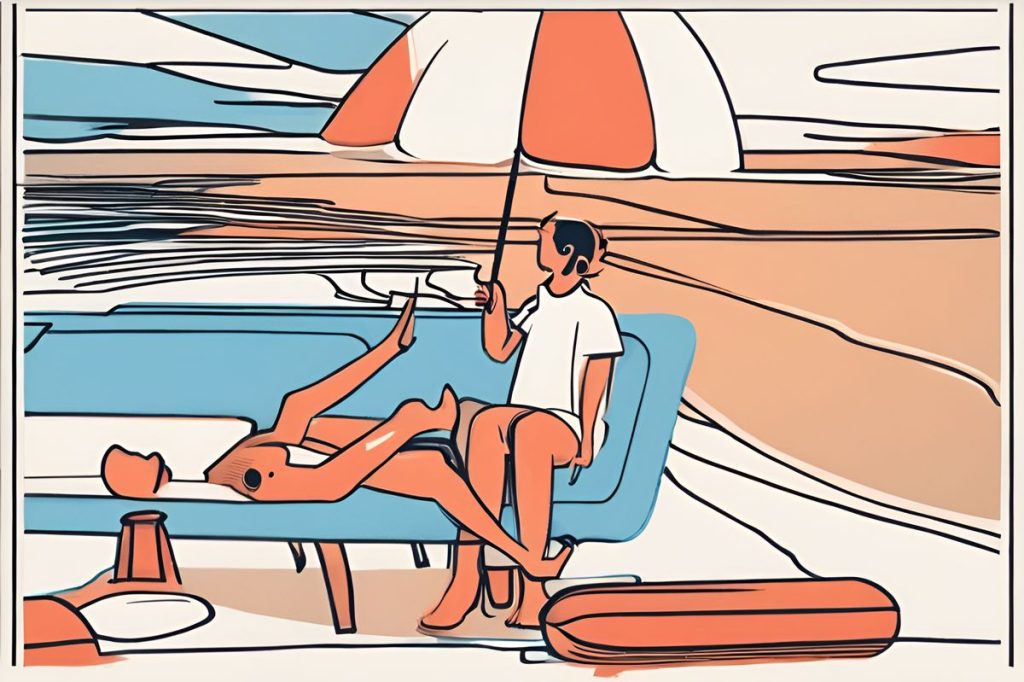A lifeguard at Glapsides Beach in Famagusta sparked outrage by announcing a discriminatory policy against Pakistani individuals and “blacks.” The incident has ignited a heated debate on racism, discrimination, and access to public spaces in the region, prompting discussions on racial profiling and the responsibilities of those in authority.
What sparked the debate on racism and discrimination at Glapsides Beach?
A lifeguard at Glapsides Beach in Famagusta announced a policy barring Pakistani individuals and “blacks” from entering, which led to an outcry on social media. This discriminatory stance has prompted discussions on racial profiling and access to public spaces.
A Disturbing Announcement
A lifeguard’s declaration in Famagusta has sparked a heated debate on racism and discrimination. Reports have surfaced that Hasan Kirmizi, a 28-year-old lifeguard known as “Gocco,” took to social media to announce a controversial policy at Glapsides Beach—a popular coastal destination. Kirmizi stated that Pakistani individuals and “blacks” were barred from entering the beach premises.
This announcement was met with a swift backlash on various social media platforms, where users voiced their concerns and criticisms. The lifeguard doubled down on his stance in a subsequent post, boldly claiming, “I am a racist but as a worker, I have to take precautions.” This stance raises serious questions about racial profiling and discrimination in public spaces.
Escalating Concerns
The situation became more convoluted when Kirmizi, in a troubling photo caption, described a group of people as “herds,” insinuating they could take over the homeland. He attempted to clarify his actions in a video, explaining his concerns over beachgoers’ behaviors, which he deemed inappropriate, such as changing clothes publicly or taking unsolicited photos of women and minors.
Further complicating matters, Kirmizi narrated an incident where he felt compelled to intervene to protect two young girls who were being followed by a group of men. He asserted that his actions were motivated by safety rather than racism. Nonetheless, the lifeguard’s actions have led to a broader discussion on the rights of access to public spaces and the responsibilities of those tasked with enforcing rules.
The Response from Authorities
In the wake of these events, Turkish Cypriot Famagusta mayor Suleyman Ulucay condemned the lifeguard’s rhetoric, emphasizing that human rights cannot be compromised and that legal actions would be pursued if necessary. The beach, being privately owned, has its own set of regulations, but they must align with broader legal and ethical standards.
It is also noteworthy that Kirmizu is affiliated with a ruling political party in the region, which has prompted discussions on whether political ties may influence the enforcement of policies at public venues. The controversy serves as a stark reminder of the ongoing struggles against discriminatory practices worldwide.
The Role of Public Spaces
Public spaces, such as beaches, are often seen as communal areas where people from all walks of life can come together to relax and enjoy natural beauty. The essence of such spaces is their openness and accessibility to everyone, regardless of their background. Incidents like the one at Glapsides Beach highlight the importance of vigilance and advocacy to ensure that public spaces remain welcoming and non-discriminatory.
While the discussions continue and the story develops, the broader implications for community cohesion, tourism, and the reputation of popular destinations like Famagusta remain at the forefront of public consciousness. The incident serves as a reminder of the work still needed to combat racism and discrimination in society.
1. What sparked the debate on racism and discrimination at Glapsides Beach?
A lifeguard at Glapsides Beach in Famagusta announced a policy barring Pakistani individuals and “blacks” from entering, which led to an outcry on social media. This discriminatory stance has prompted discussions on racial profiling and access to public spaces.
2. What controversial actions did the lifeguard take at Glapsides Beach?
The lifeguard, known as “Gocco,” declared a ban on Pakistani individuals and “blacks” from entering the beach premises. He justified his actions by claiming concerns over inappropriate behaviors and safety, but his statements were widely criticized as racially discriminatory.
3. How did authorities respond to the incident at Glapsides Beach?
Turkish Cypriot Famagusta mayor Suleyman Ulucay condemned the lifeguard’s discriminatory rhetoric and emphasized the importance of upholding human rights. Legal actions were mentioned as a potential recourse if necessary, highlighting the seriousness of the situation.
4. What broader implications does this incident have for public spaces and community relations?
The incident at Glapsides Beach underscores the ongoing challenges of combating racism and discrimination in society. It also raises questions about the responsibilities of those in authority at public venues and the importance of maintaining inclusive and welcoming environments for all individuals.

